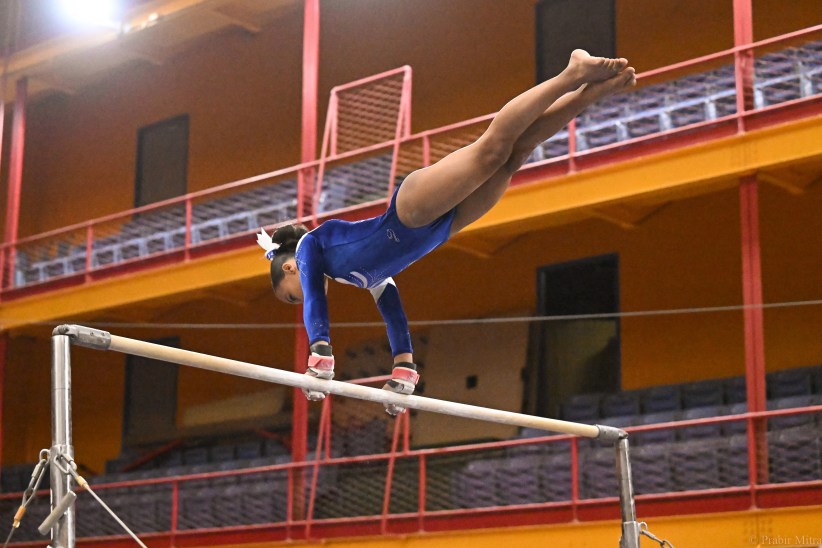
American Museum of Natural History (AMNH): More than just a home to the giant T-Rex dinosaur bones, AMNH boasts a wide range of programs and exhibits on the wonders of the natural world, from rainforest tours to huge IMAX presentations about space and wildlife. Be sure to check out its new exhibit, “Life at the Limits: Stories of Amazing Species,” which delves into the amazing superpowers that some animals and plants use to reproduce, find food, and survive. amnh.org
Brooklyn Children’s Museum (BCM): At BCM, the original children’s museum and the first LEED-certified green museum, children can experience the world at exactly their level. BCM offers kids a myriad of things to do, whether it’s crawling inside a pond aquarium or learning about their neighbors in World Brooklyn. Kids with special needs should also check out the Sensory Room, which offers activities that stimulate different senses. brooklynkids.org
Brooklyn Museum: Introduce your child to the rich heritage of world cultures at one of the largest art museums in the country. The museum also offers educational programs for everyone: Meet the Museum is an exploratory art program for ages 2-3, kids 4-7 explore the galleries through the Arty Facts program, and older kids and their parents can take classes through the Gallery/Studio Program. brooklynmuseum.org
Children’s Museum of the Arts (CMA): With its state-of-the-art Media Lab and Sound Booth, Clay Bar, and Fine Art Studio, CMA is dedicated sharing the benefits of art with all children. The museum’s exhibits are intended to delight and inspire kids, and it also offers a wide range of classes—including one for physically or developmentally challenged children and their siblings. cmany.org
Children’s Museum of Manhattan (CMOM): CMOM is committed to fostering creativity and global-mindedness through interactive exhibits that let kids learn and play at the same time. Younger kids can explore its newest exhibit, “Frolic! A Rockin’ Tot Spot For Children Ages 5 and Younger,” a rock ‘n roll-themed pop-up play-space for younger children whose features include a replica of a 1970s Volkswagen mini-van, a mini performance stage, a Rolling Stones-inspired tongue slide, and a baby sensory music mixer. cmom.org
DiMenna Children’s History Museum at the New-York Historical Society: At the DiMenna Children’s History Museum, your budding historian can learn about the history of the city and the people in it. Check out its ongoing family learning programs such as the Little New-Yorkers class, which includes story time and crafts, and Cross-Stitch Circle, where kids can learn the art of embroidery. Kids can also try their hand at research during Camp History this August. nyhistory.org/childrens-museum
El Museo Del Barrio: Visit New York’s leading Latino cultural institution and see the exhibit “Rodriguez Calero: Urban Martyrs and Latter Day Santos” (opening July 22), which explores the artwork of Puerto Rican-born artist Gloria Rodriguez Calero. On the third Saturday of every month, El Museo’s “Super Sabado” program invites families to explore the museum for free and enjoy storytelling, concerts, art-making workshops, and more. elmuseo.org
The Guggenheim Museum: Internationally renowned for modern and contemporary art, the Guggenheim offers Family Sundays with tours led by museum educators, created to engage children ages 3-10. Or, visit anytime and borrow their family activity pack with suggested activities and games. For those who are interested in the depiction of narrative through contemporary art, be sure to check out the new “Storylines: Contemporary Art at the Guggenheim” exhibit, which showcases how current artists create stories within their artwork. guggenheim.org
Intrepid Sea, Air & Space Museum: Come aboard one of the most successful ships in US history. The Exploreum Interactive Hall is an exhibit space designed for children of all ages to learn about water, space, air, and life at sea. Future pilots can blast off in flight simulators, and daredevils will love the 4D Motion Ride Theater. intrepidmuseum.org
Japan Society: Dedicated to deepening mutual understanding between the US and Japan, family programming is organized around some of Japan’s annual festivities and allows children to learn about Japanese history and culture through storytelling, crafts, and celebrations. japansociety.org
The Jewish Museum: Children will experience Jewish art and culture through projects, tours, classes, and the archaeology zone, where they gain hands-on experience with ancient artifacts. Be sure to check out the museum’s latest exhibit “Revolution of the Eye: Modern Art and the Birth of American Television,” which explores how modern art in the late 1940s influenced early American TV. thejewishmuseum.org

Liberty Science Center: Worth the trip to New Jersey, the Liberty Science Center is home to the nation’s largest IMAX dome theater, tornado- and hurricane- force wind simulators, a pitch-black crawl-through Touch Tunnel, and the BASF Kids’ Lab, where ages 6-12 can get their hands dirty conducting science experiments. lsc.org
The Metropolitan Museum of Art: Storytime in the Nolen Library, Sunday Studio, and Start with Art at the Met are just a few of this renowned museum’s kid-friendly programs. The Met also offers a program for families with children who are blind or partially sighted, plus one for children over age 6 who have learning or developmental disabilities. metmuseum.org
The Morgan Library & Museum: Originally the private library of John Pierpont Morgan, the Morgan Library & Museum now houses all forms of manuscripts, early books, and prints. Keep an eye out for family-friendly events like the Spring Family Fair. This summer, check out the “Alice: 150 Years of Wonderland” exhibit, which presents the fascinating story of the creation and enduring appeal of Lewis Carroll’s Alice’s Adventures in Wonderland. themorgan.org
Museum of American Finance: Located on Wall Street in a historic bank building, this museum covers all things financial—from a centennial celebration of the Fed to the history of American banking (which includes multimedia explorations of piggy banks and bank robberies) to a room devoted to Alexander Hamilton, the first US Secretary of the Treasury. moaf.org
Museum of Arts & Design (MAD): MAD explores the intersection of art, design, and craft. Kids will be especially interested in the Studio Sunday programs and the Sarah and Seth Glickenhaus Education Center—an open studio where visitors of all ages can watch artists at work and participate in the creative process. madmuseum.org
Museum of Chinese in America (MOCA): MOCA is dedicated to preserving and presenting the history and culture of Chinese Americans. Be sure to check out the exhibit “Water to Paper, Paint to Sky: The Art of Tyrus Wong” to learn about the celebrated Chinese American artist most famous for his animation work on the classic Disney film “Bambi.” Museum visitors can also check out the many performances, book readings, and games meant to entertain multiple generations. mocanyc.org
Museum of the City of New York: Showcasing the city’s unique past and diverse heritage, the Frederick A.O. Schwarz Children’s Center offers programs that teach children about NYC. Permanent collections at the museum include “Activist New York”—which teaches children and adults about social activism in the city—and “Gilded New York,” which features decorative objects, accessories, and costumes from the Gilded Age. mcny.org
Museum of Mathematics (MoMath): MoMath offers kids great opportunities to learn about the world from a mathematical perspective. Through interactive exhibits and programs, kids can embrace math and its many mysteries. Keep an eye out for the free Family Fridays workshops, which occur once per month on Friday evenings. momath.org
Museum of Modern Art (MoMA): We all know that MoMA offers interactive workshops (like MoMA Labs) and gallery talks for families, but you may be surprised to discover that the museum also offers free screenings of new and classic family films, complete with a discussion led by MoMA educators. moma.org
Museum of the Moving Image: Check out a weekend screening of family-friendly films at the Museum of the Moving Image in Astoria, Queens! Workshops that teach kids about movie magic and allow them to create their own moving images—through flipbooks and stop-motion animation—make this museum a rainy day hit. Later this year, look out for a new exhibit celebrating the work of Jim Henson. movingimage.us
National Museum of the American Indian: Learn about the original inhabitants of New York at this museum in Bowling Green. Available by appointment, tours of the Haudenosaunee Discovery Room teach kids about traditional and modern American Indian life through hands-on activities. nmai.si.edu

National September 11 Memorial Museum: Teaching your children about the events of 9/11 is difficult, but the 9/11 Museum’s tours and historical and memorial exhibitions can help. They also offer an online museum guide for parents to use with kids ages 8-11—it’s filled with key terms, questions, and age-appropriate information. Children 6 and under enter free. 911memorial.org
New Museum: As New York’s only museum dedicated to contemporary art, the New Museum offers First Saturdays for Families—a chance for families to explore the exhibits and learn about contemporary art. The museum also hosts a Block Party every summer that features live performances and activities for kids of all ages. newmuseum.org
New York City Fire Museum: Aspiring firefighters will enjoy seeing truck and squad gear of the past and present. The museum features five permanent exhibits, including “Tools and Uniforms,” “Romance of Firefighting,” and a tribute to the 343 members of New York City’s Bravest who lost their lives on 9/11. nycfiremuseum.org
New York Hall of Science: This hotspot, located in Queens, satisfies both children’s and adults’ curious streaks. Family workshops allow the whole family to experiment together while Preschool Place is an exciting, multi-sensory destination for little ones. While you’re there, be sure to check out its touring exhibit, “Charlie and Kiwi’s Evolutionary Adventure,” which covers the basics of evolution. nysci.org
New York Transit Museum: Subway and train fanatics will learn how New York’s great transportation system was created, and will enjoy weekend programs that incorporate science, art, and books. With a regular story hour for tots and an afterschool program for kids on the autism spectrum, this Brooklyn Heights museum is a must for all city children. mta.info
Queens County Farm Museum: As the longest continuously farmed site in New York State, the Queens County Farm Museum is both a historical attraction and a year-round museum. With events such as the Annual Queens County Fair in September, a pumpkin patch in October, and Wildlife Weekends in November, there’s always something exciting going on at the farm. queensfarm.org
Rubin Museum of Art: Art from the Himalayas may not be what first comes to mind when thinking about a cultural outing for the kids, but the Rubin Museum makes family programming a priority. Drop-in workshops, family art labs, and family days and festivals will introduce your kid to the joys of art, yaks, and yurts! rmanyc.org
Skyscraper Museum: Celebrate our vertical city with a trip to Battery Park City’s Skyscraper Museum. Educators engage kids on topics like urbanism, architecture, and engineering through family programs such as Sidewalk Art, Skyscraper Physics, and Trash Factory. Be sure to check out the exhibit “Ten Tops,” which explores the tops of skyscrapers that exceed 100 stories. skyscraper.org
South Street Seaport Museum: The South Street Seaport Museum offers visitors an opportunity to learn about the city, the sea, and the seaport neighborhood, telling the story of New York’s rise as a port city. Families can participate in various activities—from making and decorating model boats to knot-tying workshops. seany.org
Staten Island Children’s Museum: Whether you enjoy playing chess with life-sized pieces or watching the birth of butterflies, the exhibits in the Staten Island Children’s Museum are sure to amaze. On weekends, families can participate in the Up4Art series, create holiday crafts, or assist museum staff as they feed and care for bugs, fish, guinea pigs, and other fine-feathered friends. statenislandkids.org

Tenement Museum: Home to nearly 7,000 working-class immigrants in 1863, the Tenement Museum provides visitors with a unique way to appreciate the Lower East Side’s history. With walking tours of the neighborhood and themed tours within the building (including one from an impersonated 14-year-old past resident), your family will gain insights into the New York immigrant experience. tenement.org
The Toy Museum of NY: Toys are not just for playing—they’re for learning, too! Kids can discover the history of toys and see toys from this traveling museum’s collection in “The Toy Museum: A Mini Musical,” a variety of storytelling programs, an interactive puppet making workshop, and more. toymuseumny.org
The Whitney Museum of American Art: “Crying babies welcome!” is the tagline of Stroller Tours at the Whitney, offered for new parents and caregivers and their little ones, from 0-18 months, on select days when the museum is closed to the public. Art making workshops geared toward children of various ages are also available to engage your little ones in the artistic process and the museum’s collections. whitney.org
For a list of museums that you probably don’t (but should) know about, click here.






















